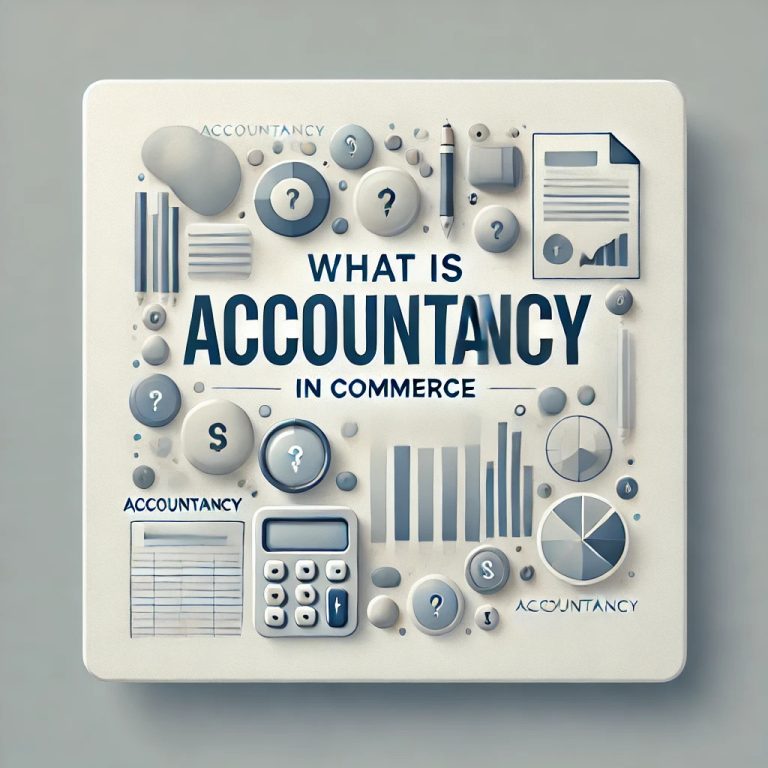It is the process of recording, summarizing, analyzing, and reporting the financial transactions of a business in a systematic way. Accountancy ensures the existence of correct financial books for business organizations, which are very essential for various decision-making purposes, control over finance, and adherence to other regulatory requirements. As it facilitates current and future long-term organizational steps through financial information, it plays an extremely important role in commerce.
What Is Accounting?
Accounting refers to the orderly recording, classifying, and reporting of financial transactions as they occur, resulting in specific financial reports. Accounting practice therefore provides information on the profitability of a company, cash flows, or financial health of the firm in order to enable stakeholders-including management, investors, and regulators-to take informed decisions.
- Recording Transactions: Ensures all business dealings are documented.
- Summarizing Financial Data: Prepares reports like balance sheets and income statements.
- Compliance and Control: Helps businesses adhere to legal requirements and manage risks.
History of Accounting
The history of accounting dates back thousands of years, evolving from simple bookkeeping to complex financial systems. The evolution of accounting reflects the growing complexity of global commerce and business.
- Ancient Civilizations: The first records of accounting were found in Mesopotamia around 3000 BCE, where merchants tracked trade.
- Double-Entry System: Introduced by Luca Pacioli in the 15th century, this system revolutionized accounting practices.
- Modern Accounting: Over time, accounting developed into a formal profession with regulations, such as Generally Accepted Accounting Principles (GAAP) and International Financial Reporting Standards (IFRS).
What Are the Different Types of Accounting?
Accounting can be categorized into multiple fields, each serving distinct purposes. Each type plays a vital role in different aspects of business operations and governance.
- Financial Accounting: Focuses on creating financial statements for external stakeholders.
- Management Accounting: Provides internal management with reports for planning and decision-making.
- Cost Accounting: Tracks production costs to manage efficiency and profitability.
- Tax Accounting: Deals with the preparation of tax returns and ensures compliance with tax laws.
- Forensic Accounting: Investigates financial fraud and disputes.
What Types of Careers Are in the Accounting Field?
The accounting field offers diverse career opportunities across industries. These roles require a deep understanding of accounting principles, analytical skills, and professional certifications.
- Chartered Accountant (CA): Provides financial advice, audits, and tax consultancy.
- Management Accountant: Helps organizations with budgeting, forecasting, and financial strategy.
- Auditor: Verifies the accuracy of financial statements and ensures compliance.
- Tax Consultant: Specializes in preparing tax returns and advising on tax matters.
- Forensic Accountant: Investigates financial irregularities and assists in legal proceedings.
What Is the Accounting Cycle?
The accounting cycle refers to the cycle adopted by businesses regarding recording and reporting financial transactions over a specified period. It ensures the accuracy of financial reports in a systematic way.
- Recording Transactions: Entries are recorded in journals based on invoices and receipts.
- Posting to the Ledger: Entries are transferred to the general ledger accounts.
- Trial Balance Preparation: Ensures debits and credits are balanced.
- Adjusting Entries: Adjustments are made for accruals or deferrals.
- Financial Statement Generation: Produces the income statement, balance sheet, and cash flow statement.
- Closing Entries: Resets temporary accounts for the next accounting cycle.
Conclusion
Accountancy in Commerce manages business finance effectively. In such a scenario, accounting helps to monitor and display performance, regulations, and driving decisions with available data. The same includes various types of accounting such as financial accounting, tax accounting, forensic accounting, managerial accounting, and others. An accounting career-from an auditor to a tax consultant-the scope for professionals is immense. The accounting cycle helps keep businesses intact and maintains fair financial records contributing to its growth and sustainability.
What is Accountancy in Commerce FAQs
1. What is the objective of financial accounting?
Financial accounting communicates with other users; hence, it makes use of financial statements for investors and regulators.
2. What is the double-entry system?
It is an accounting system that records every transaction changing two accounts by debiting one account and crediting the other. In this system, two accounts are affected in a transaction while maintaining the balance of the accounting equation.
3. Compare financial and management accounting?
Financial accounting reports to external users, whereas management accounting makes decisions internally.
4. How do I become a recognized accounting professional?
CA, CMA, and CPA certifications are well-known; otherwise, degree in commerce and/or finance is also a prerequisite.
5. How does accounting serve the interests of business enterprises?
Accounting aspires to ensure the transparency of financial statements; hence it is considered as compliance with law, and entails crucial strategic business decisions.


